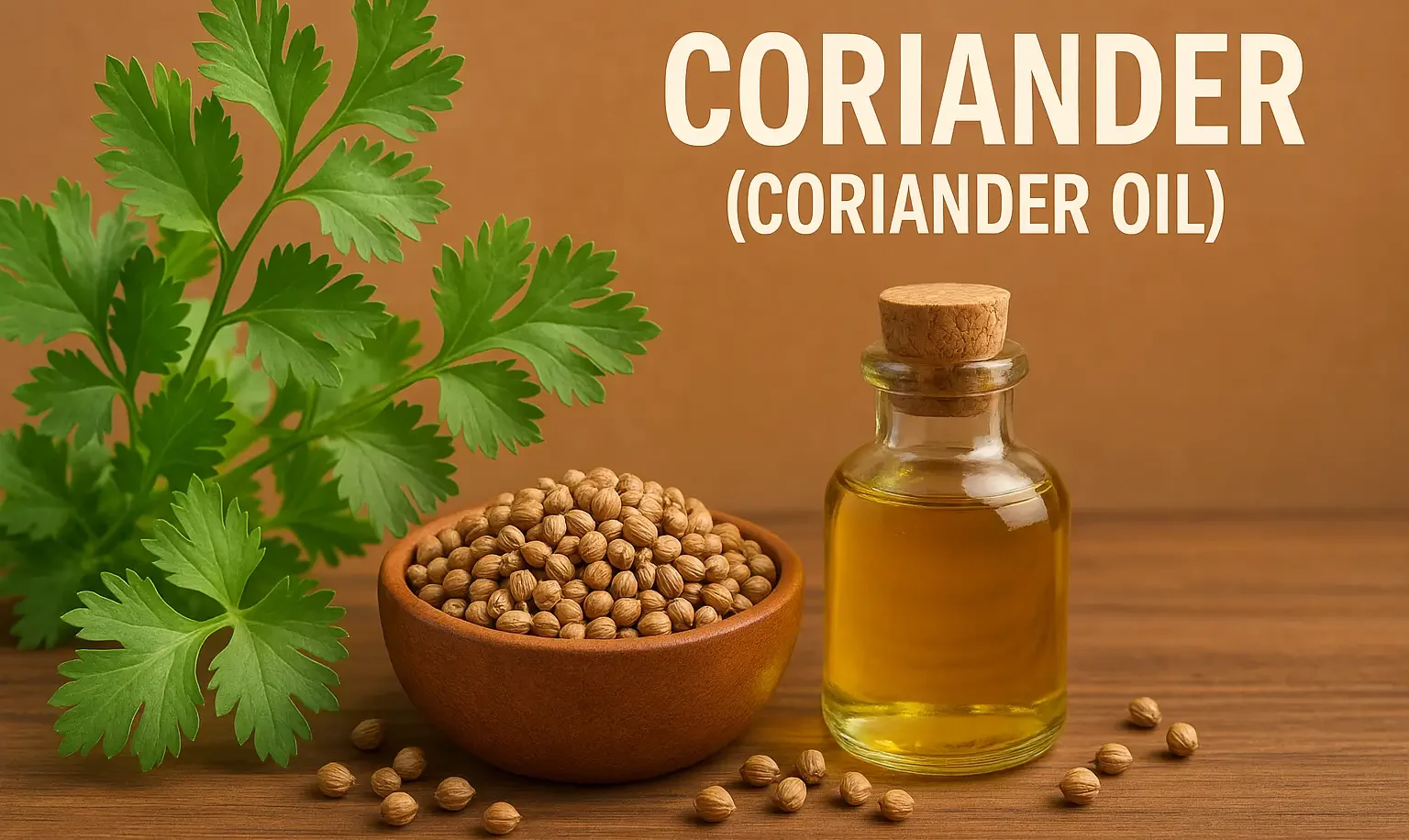General Introduction to Coriander (Coriander Oil):
- Coriander oil is obtained from the seeds of Coriander and is valued for its digestive, antimicrobial, and anti-inflammatory properties.
- It is also a popular flavoring agent.
Synonyms of Coriander:
- Common name: Coriander
- Scientific name: Coriandrum sativum
- Synonyms: Dhania (Hindi)
Biological Source:
- Volatile oil is obtained from the dried fruits (seeds) of Coriandrum sativum.
Family:
- Apiaceae
Composition:
- Major constituents:
- Linalool (60-70
- α-Pinene
- γ-Terpinene
- Camphor
- Other minor compounds include geraniol and borneol.
Chemistry & Chemical Classes:
- Chemical Class: Monoterpenoids.
- Structure:
- Linalool is a monoterpene alcohol responsible for coriander’s floral, citrusy aroma.
Therapeutic Uses:
- Digestive aid: Relieves indigestion, flatulence, and bloating.
- Antimicrobial: Effective against bacteria and fungi.
- Anti-inflammatory: Reduces swelling and inflammation.
- Carminative: Improves appetite and relieves colic.
Commercial Applications of Coriander:
- Used as a flavoring agent in food and beverages.
- Incorporated in perfumes and aromatherapy oils.
- Used in herbal preparations for digestive complaints.
Thank you for reading from Firsthope's notes, don't forget to check YouTube videos!


